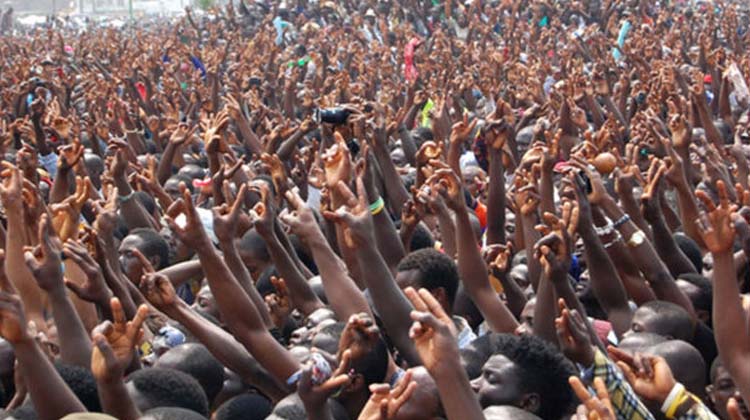LEKAN SOTE FROM PUNCH
The provocative claim by some Nigerians, of Igbo extraction, that Lagos is a no-man’s land riles the Yoruba, who are the first settlers in Lagos. Some Igbo, probably in retaliation for the hostility demonstrated against them by their Yoruba compatriots, during the recently concluded presidential election, employed rather violent words in return.
The Yoruba became even more anxious when Peter Obi, presidential candidate of the Labour Party, defeated the godfather of Lagos politics, Asiwaju Bola Tinubu, who won the presidency almost by a whisker.
Lagos was won for Obi by the Igbo, Lagos indigenes disgruntled with Tinubu’s party machine, urban Pentecostal Christians and youths, angered by the way #EndSARS agitation was handled by Lagos State Government.
The audacious claim of no-man’s land may have gotten to Nollywood actor, Yul Edochie, son of Nollywood veteran, Pete Edochie, one of the most talented, skilled and urbane thespians in Nigeria.
Yul said, “This talk flying around that Lagos is no-man’s land is wrong. Lagos is a Yoruba state in Yorubaland… You can’t come into someone’s land and tell the person it’s a no-man’s land. Na you dey find trouble.”
And declared: “Nobody can deny the fact that the Igbo have contributed immensely to the development of Lagos. Other tribes have contributed in their own ways too. And the Yoruba have been largely accommodating as well. It shouldn’t take away the fact that Lagos is a Yorubaland. We no dey drag ownership.”
Yul tried to explain the sense of insult that the Yoruba may have felt from talk that Lagos is no-man’s land: “Imagine someone saying that Anambra is no-man’s land. That is crap. Anambra is Igboland.”
The first governor of Lagos State, Brigadier General Mobolaji Johnson, once declared that “Lagos (that was simultaneously federal capital and seat of Lagos State Government), is not a no-man’s land.”
The Concerned Igbo Stakeholders say, “We state unequivocally that Lagos is neither an Igbo state nor a no-man’s land… It wholly belongs to the Yoruba.” Also, World Igbo Congress, Inc. describes itself as “The Global Network of All Igbo People from the Southeastern, Delta and Rivers states of Nigeria in the Diaspora.”
Even Section 147(4) of the Constitution, which recognises that some people are indigenous to a state, demands: “The President shall appoint at least one minister from each state, who should be an indigene of such state.”
The Lagos State Labour Party governorship candidate, Gbadebo Rhodes-Vivour, who describes himself as a Southern Nigerian, because his father is Yoruba and his mother is Igbo, says, “I vehemently disagree with the idea that Lagos is a no-man’s land. It is extremely disrespectful… Lagos has (founders).”
Some have even rightfully argued that you shouldn’t become so cosmopolitan and accommodating to the extent that you hand over your space to others. And they may well have an argument.
But that is no excuse for anyone to prevent the Igbo from voting in Lagos, burning their property, maiming or killing them because they have political opinion contrary to that of their host communities.
Prince Olofin, son of Oduduwa, progenitor of the Yoruba, founded Eko, which Portuguese explorers and traders of the 15th Century, renamed Lagos, because its shoreline resembled that of a port city in Portugal.
The adventurers proceeded from Ife, using a plate as a magical compass that would lead them to a place they could settle into without contest or rancour. Eventually, the plate buried itself in Idumota on Lagos Island. When Olofin, who took the plate to the Island, returned to the camp at Iddo, without the plate, his followers asked him what happened.



Connect with us on our socials: